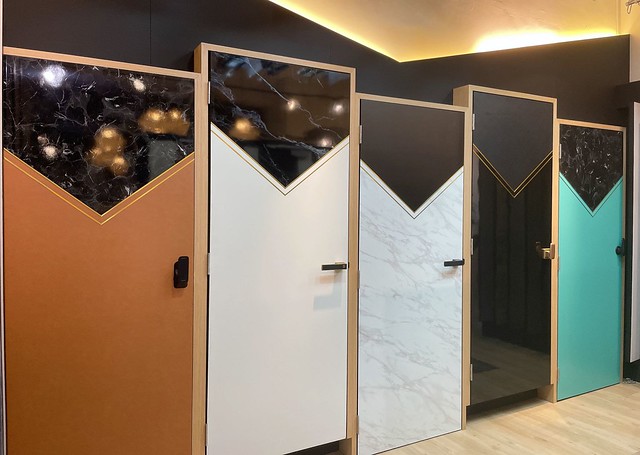Electric Combi Boiler Manufacturers
Electric combi boiler manufacturers are renowned for their quality products that deliver high-performance heating and hot water. They are often cheaper than gas boilers and offer a better alternative to traditional fuel-based heating systems.
They don’t require a hot water tank, which makes them ideal for smaller homes and apartments. These models also feature energy efficiency, reducing electricity consumption.
Energy efficiency
Electric combi boilers are a popular choice for homeowners looking to save energy and money. They offer a compact design, making them ideal for smaller homes, and use a stainless steel heat exchanger to reduce the build-up of limescale and other contaminants. They also have a built-in pump for quiet operation.
As a result, many manufacturers claim that their electric combi boilers have double the lifespan of gas models. This is partly due to the lack of combustion and rapid internal movements found in conventional boilers, which reduces stress and corrosion. In addition, they do not produce carbon monoxide and are therefore safe to use in homes with children or pets.
In addition to offering greater efficiency and reliability, some models come with smart controls that allow users to monitor water heater their heating needs and control their energy usage remotely. This can lead to significant savings on fuel bills and reduced carbon emissions.
A good way to check your boiler’s energy efficiency is to look for a plate or sticker under the unit, where the pipes protrude. The label will give you the brand name, model number, and other information. You can then use this information to determine the boiler’s energy efficiency rating.
As a general rule, you should avoid buying an inefficient electric combi boiler, as this will cost more to run than a gas-powered equivalent. However, you can take advantage of the latest energy tariffs to lower your costs even further.
Output rating
Electric combi boilers offer a powerful heating solution without the need for gas or oil. Their compact designs and versatile functionality make them popular with homeowners across the UK. However, assessing the right model for your property requires careful consideration. This includes evaluating the upfront price and installation costs. This can help you craft a budget that aligns with your home’s needs.
It is also important to evaluate the energy efficiency of electric boilers. Higher efficiency rates equate to lower operating costs, and can help you make the most of your electricity supply. Additionally, choosing an electric combi boiler with a low energy demand can reduce your household carbon footprint.
If you are replacing a gas boiler with an electric one, it will typically cost less to install, as the installer won’t have to remove and reconnect the gas line. However, it will still be necessary to upgrade the pipework to accommodate the new boiler. Additionally, electric boilers require a three-phase electricity supply, so you may need to pay for an upgrade.
Another benefit of an electric boiler is that it doesn’t have a flue, so you can have tankless instant water heater it installed in flats on multiple floors without needing to erect scaffolding. This makes it a popular choice for people who live in high-rise buildings. In addition to this, you can save space in your airing cupboard by ditching the hot water cylinder.
Water flow rate
Electric combi boiler manufacturers offer a wide range of models suitable for different home sizes and types. However, it is important to choose a model with a high heating capacity to ensure efficient operation in cold weather. You should also check the boiler’s efficiency rating, which indicates how much energy it uses to produce hot water.
The speed at which the water passes through the heat exchanger will determine how much heat is absorbed. This is why the flow rate of an electric boiler is quoted in litres per minute (L/min). If the temperature rise is higher, the boiler will need to operate at a lower flow rate.
Unlike gas combi boilers, electric combi boilers don’t require a flue pipe system. This means they can be located in more locations, and installation costs are reduced. They also work well in conjunction with solar power, which helps to further reduce energy bills.
Most electric combi boilers are only capable of producing a limited amount of hot water, and as a result, they are not suitable for homes with more than one bathroom. If you need more hot water, you may want to consider a storage combi boiler, which has a built-in cylinder and can meet the needs of two bathrooms at once.
In addition, electric combi boilers don’t release any noxious fumes, which makes them safer to use in your home. They are also more affordable than gas combi boilers, and can help to lower your carbon footprint.
Safety
Understanding the inner workings of an electric combi boiler helps homeowners make informed choices about their heating systems. This is especially crucial if you plan on purchasing one, as these models are generally more expensive to run than gas models. To prevent unwanted expenses, you should evaluate the initial price and ongoing operational costs closely to create a comprehensive budget.
Most manufacturers of these units offer extensive warranties to reassure customers about their purchase decisions. Moreover, they typically have guides and manuals with precise specifications to assist in selecting the right model for your home. The output rating is another important factor to consider, as it influences your heating and hot water needs. The best electric combi boilers provide a balance between power output and efficiency, eliminating energy waste.
The printed circuit board is a critical component of the boiler, facilitating all the connections that are necessary for the unit to work properly. If the PCB has an electrical fault, you may notice loud noises or a display of error codes. If you notice these problems, contact a professional immediately.
Another safety feature of these units is the expansion vessel. This component protects the boiler against sudden changes in pressure, preventing damage to the internal components. This is a vital safety feature, particularly for older homes that might have leaks in the system.


